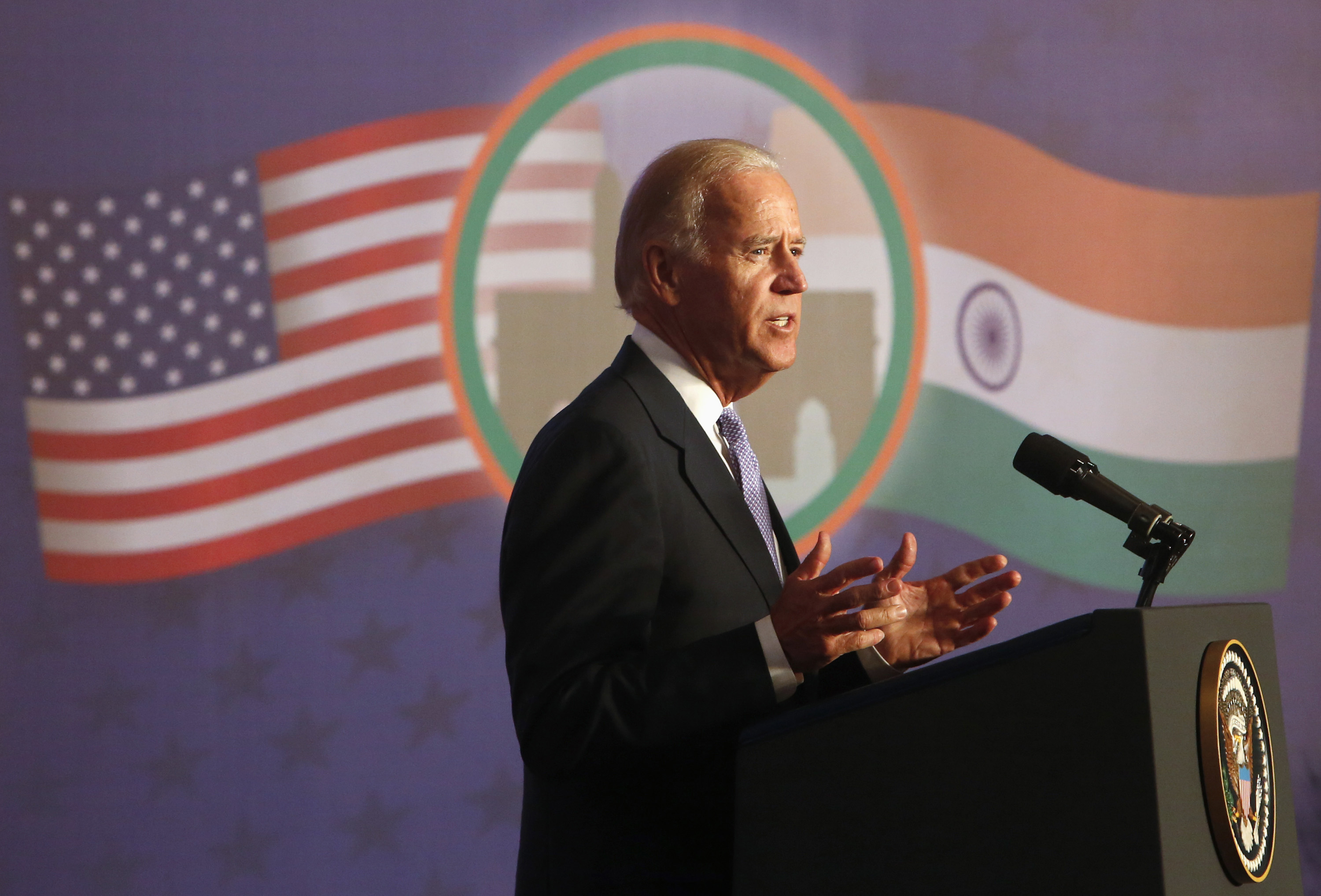Biden sees US-India natural partnership as a relationship, not a transaction. This is a marked contrast with Donald Trump.
Washington, DC: In 2006, during the fight to make the US-India civil nuclear deal a reality, Joe Biden outlined his vision for US-India relations. Biden said, “My dream is that in 2020 the two closest nations in the world will be India and the United States.” Biden has acted to make this dream a reality and will continue to do so as President of the United States.
I can personally testify that the US-India civil nuclear deal would never have become a reality without the leadership of Joe Biden. At the time, I was secretary of a coalition of business, Indian Americans, and the policy community building support for the deal. I saw up close the forceful, steady, principled leadership of Joe Biden. As Ranking Member of the Senate Foreign Relations Committee, he took implementing legislation that was dead on arrival in the Congress, moulded it into acceptable language, and led the successful effort to achieve strong bipartisan support that brought US-India relations to a new and higher level.
As Vice President, he was a strong supporter of the Obama/Biden administration’s Defence Technology Trade Initiative with India, the designation of India as a Major Defence Partner, and the struggle to give India access to US defence technology. Biden stands with India in the fight against international terrorism and keeping China from seizing Indian territory and becoming a controller of the Indian Ocean and the South China Sea.
Biden sees US-India natural partnership as a relationship, not a transaction. This is a marked contrast with Donald Trump. Trump is an erratic leader who has turned on American allies from NATO to South Korea with threats not to fulfill US commitments unless more money is forthcoming. He pulled out on Kurdish fighters in the Middle East after they had sacrificed lives to defeat the ISIS. With Trump, everything is “The Art of the Deal”. Trump revels in creating chaos as a means to getting what he wants. Trump has denigrated all that has come before him and proclaimed the uniqueness of his international vision and achievements. These are not sound characteristics upon which to build a strong, lasting, and dependable US-India security relationship.
Biden sees that the US-India relationship to be strong must be wider than a transactional defence relationship. It must encompass economic engagement, environment and health challenges, and democratic values. On these issues Biden is clearly best for US-India relations.
On economic issues, Biden will not employ the zero sum, bullying tactics favoured by Trump. The deprivation of GSP simply to gain a bargaining chip and creation of numerous unproductive tariff disputes are prime examples. Under Biden, there would be a restoration of more traditional means of resolving trade differences with India. This would include a reinvigoration of WTO dispute settlement mechanisms.
An economic strength of the Indian economy lies with skilled workers being able to move across international boundaries. Trump has decimated the H1B program, curtailed immigration of all kinds, and threatens a nativist approach that will cause additional commercial as well personal damage.
On the issues of environment and health, there is a clear difference between Trump and Biden. The preeminent environmental issue of our time is climate change. The US and India are already suffering the fires, floods, droughts, pollution, and debilitating temperatures predicted by scientists as a result of climate change. A greater environmental catastrophe looms unless the US and India can work together on this issue. Trump has withdrawn from the Paris climate change agreement and favours the dismantling of many environmental protections. Biden is the opposite. Thus, to the extent cooperation between the US and India on climate change and the environment is important, Biden is best.
The same is true of cooperation on health issues. Although there has been consultation between the Trump administration and their Indian counterparts on the Covid-19 pandemic, little has actually been accomplished or even undertaken. Trump did get Narendra Modi to release Indian made hydroxychloroquine, but Trump has refused to allow the US even to participate in international vaccine development efforts championed by India. Biden has indicated that he would have the US lead international pandemic efforts, presumably in conjunction with India. A President who claims that Covid-19 is no more serious than the common flu will be of no help on US-India health issues.
Advocates of strong US-India relations have long spoken of the common values of democracy as a foundation for the US-India partnership. On the issue of values there is the clearest choice. Trump has shown that democratic values are not high on his agenda. In contrast, Biden has called for these values to be of universal importance. In order to make a more perfect partnership, US-Indian relations should be based on common democratic values. Otherwise the differences that arise will make an enduring alliance impossible. If one accepts both this assessment and the desirability of a positive outcome to this struggle, then Biden is clearly best for US-India relations.
Biden will be best for US-India relations because he views the connection between our two nations as a relationship rather than a series of transactions. A relationship of equality between two great democracies. A relationship that should be the closest in the world. A relationship that faces the wide range of issues important to the people of both nations.
Raymond E. Vickery, Jr. is Senior Associate, Center for Strategic and International Studies; Senior Advisor, Albright Stonebridge Group; Former US Assistant Secretary of Commerce, Trade Development. The opinions expressed in this article are the personal views of the author.

